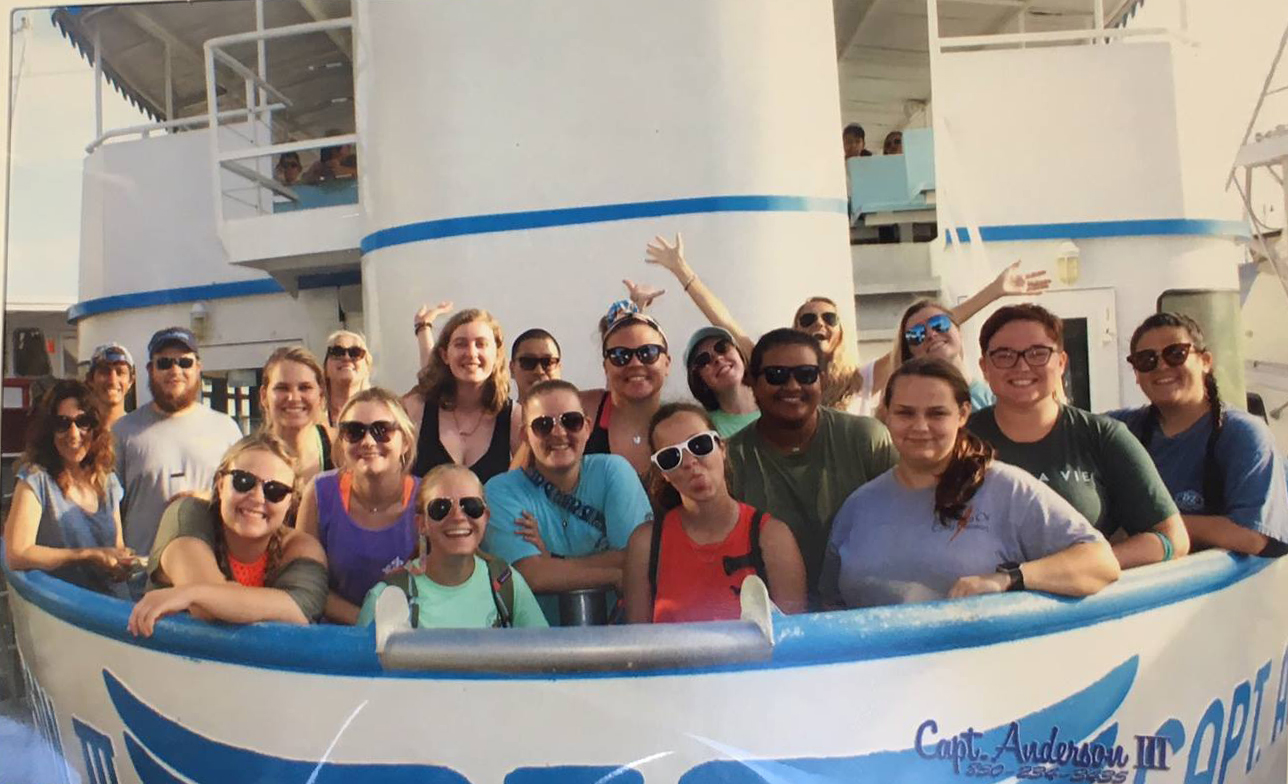
Students at the Dauphin Island Sea Lab are learning more than just the anatomy and the behavior of marine mammals during University Programs summer session. They are also learning how they can apply what they learn to help to protect these animals.
Visiting summer faculty member Jennifer Lewis challenged her marine mammal class during First Session to create a public service announcement encouraging the public to stop hand-feeding dolphins. The project offers real world application to what they are learning in the classroom, and many of the students have appreciated that part.
“In a normal class, projects are designed to refine skills such as public speaking or how to structure your ideas into a coherent thought,” Peyton Givan explained. “However, this class project is different. We as students get to apply the knowledge we have learned and share it in a way that will potentially impact and educate others outside of the 20 or so people in our class.”
Givan and her classmates spent the five week term hearing from experts such as NOAA Fisheries Jessica Powell, going into the field to speak with the public, and observing first hand how hand-feeding dolphins can be detrimental to the dolphins well-being.
“I really enjoyed surveying the public and listening to everyone’s opinions about hand feeding dolphins,” Elizabeth Nasharr said. “It was very eye opening to see how many individuals were unaware about this conservation issue. An action that seems so innocent, yet is illegal and has created many negative impacts on the dolphin population.”
For the students, the task at hand presented a challenge of taking what they learned and condensing it into a quick-to-digest message that can be shared.
“I found it challenging to take the jargon that we use in class, and the knowledge we have and being able to turn it around to teach others that don't have the same knowledge that we do. It is a valuable experience though,” Rachel Hopp said.
The PSA’s produced by the students can be viewed below. Those involved hope that their work this summer on this project will change people’s opinions the next time they see a dolphin alongside the boat. Hopp said the experience will also help her on her future plans.
“I think this project will help me with my future endeavors because I would love to find a way to teach people, like working at a zoo or aquarium. So, getting the chance early to taking something from 'straight science' to something more relatable was a really useful experience,” Hopp shared.
University Programs summer session ends on Friday, August 3.
Don’t Feed Wild Dolphins 4.0 from Dauphin Island Sea Lab on Vimeo.